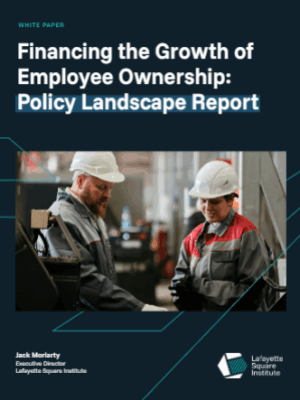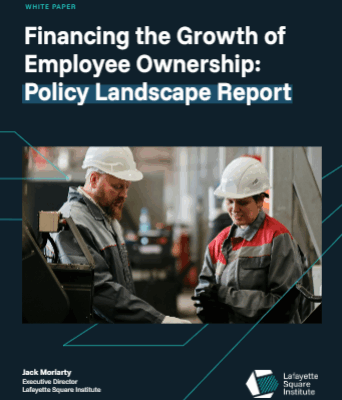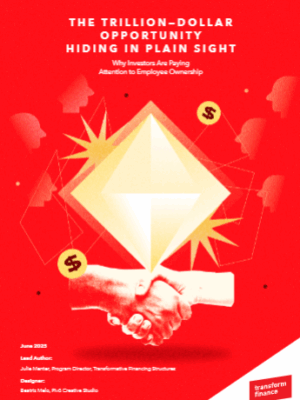As Georgia leaders work to expand financial inclusion and community wealth, employee ownership is emerging as one of the most powerful, and underutilized, strategies to get there. Whether through Employee Stock Ownership Plans (ESOPs), worker cooperatives, or Employee Ownership Trusts, giving workers a stake in the businesses where they work has proven to build wealth, retain jobs, and anchor businesses in their communities. In a state where nearly half of all business owners are nearing retirement, these models also offer timely solutions to preserve small businesses and prevent wealth loss.
By chance, two national thought leaders, Transform Finance and the Lafayette Square Institute, each released new reports (The Trillion Dollar Opportunity Hiding in Plain Sight: Why Investors Are Paying Attention to Employee Ownership and Financing the Growth of Employee Ownership: Policy Landscape Report) which make the case for employee ownership as a driver of inclusive prosperity, quantify the scale of the opportunity, identify barriers in the current financial system, and recommend policies and capital strategies to accelerate adoption.
Don’t have time to dig into these pieces right now? Check out our key takeaways and how they relate to Georgia’s context!










